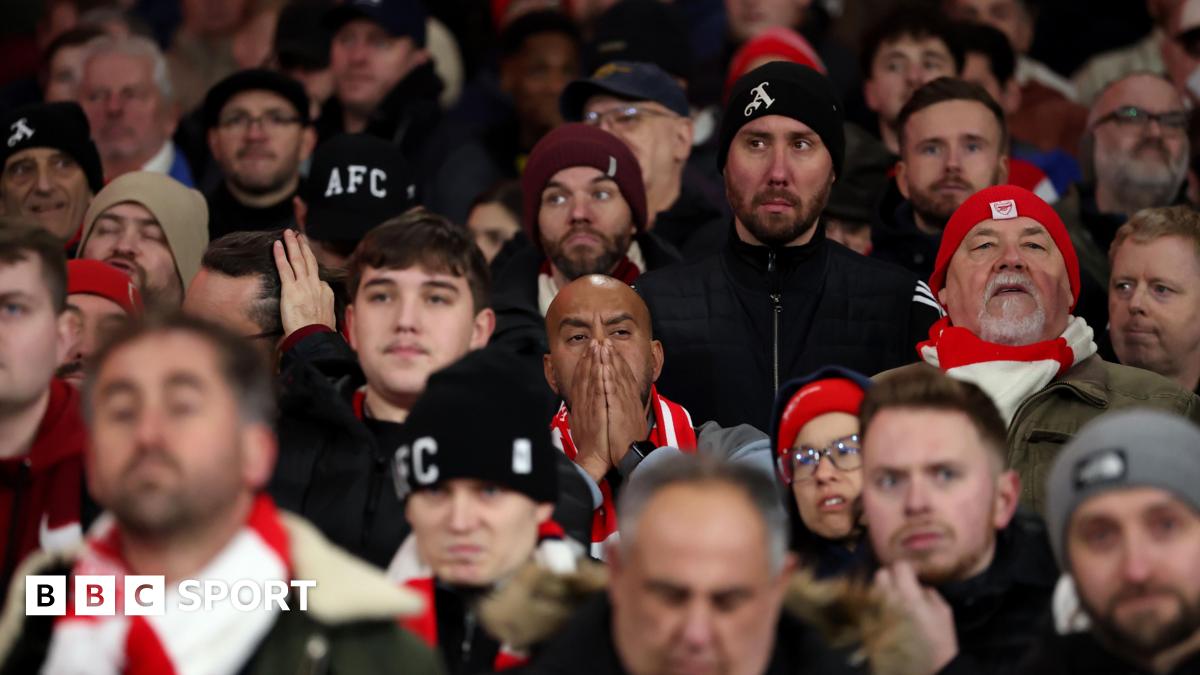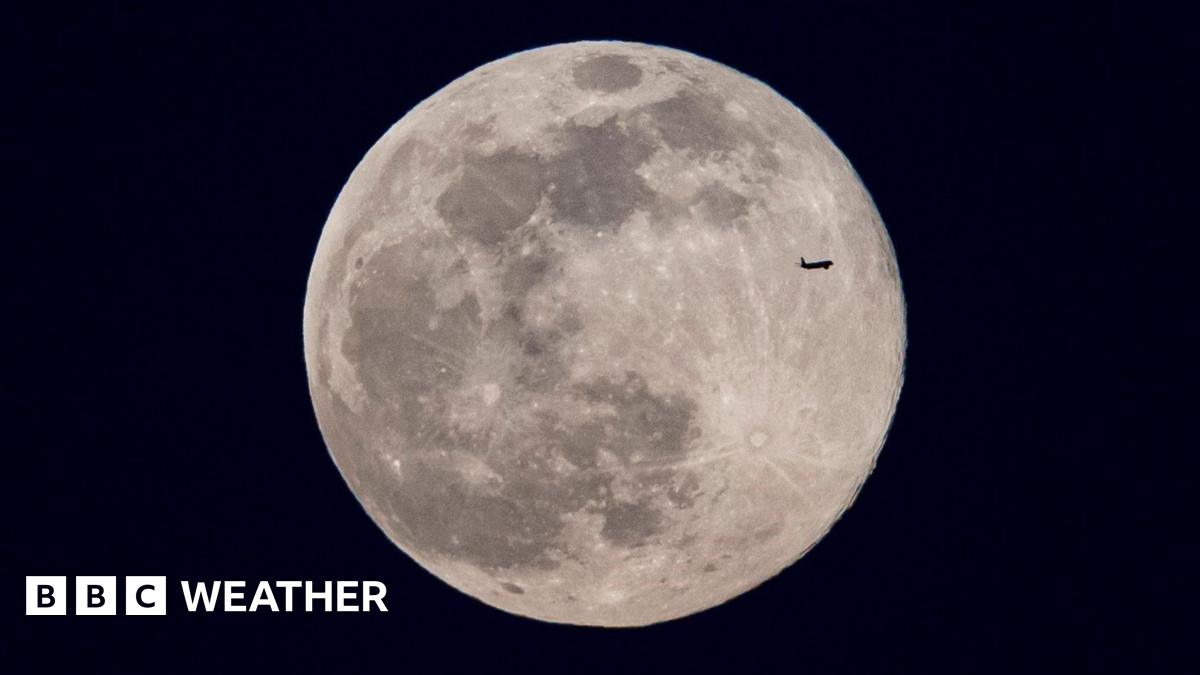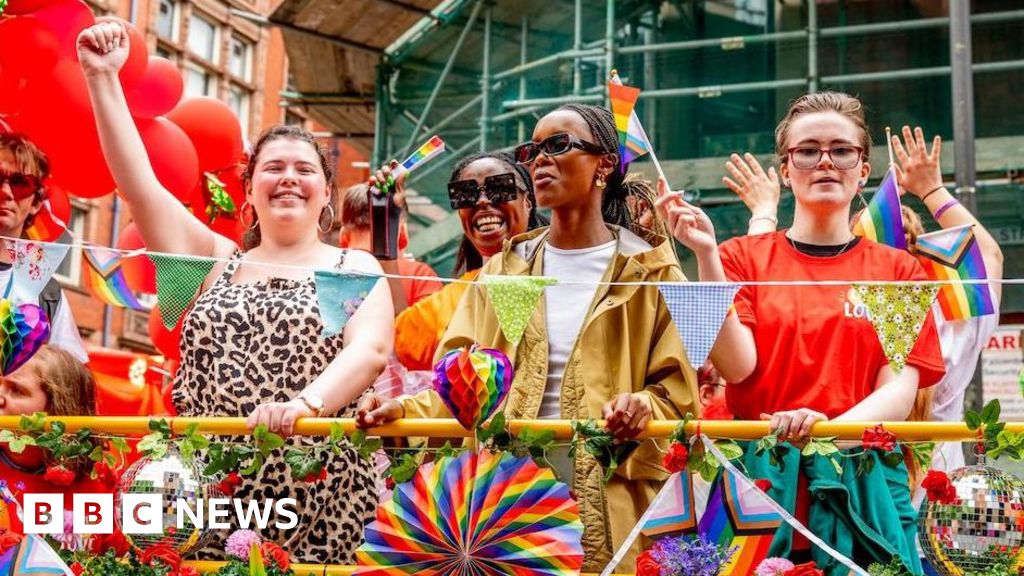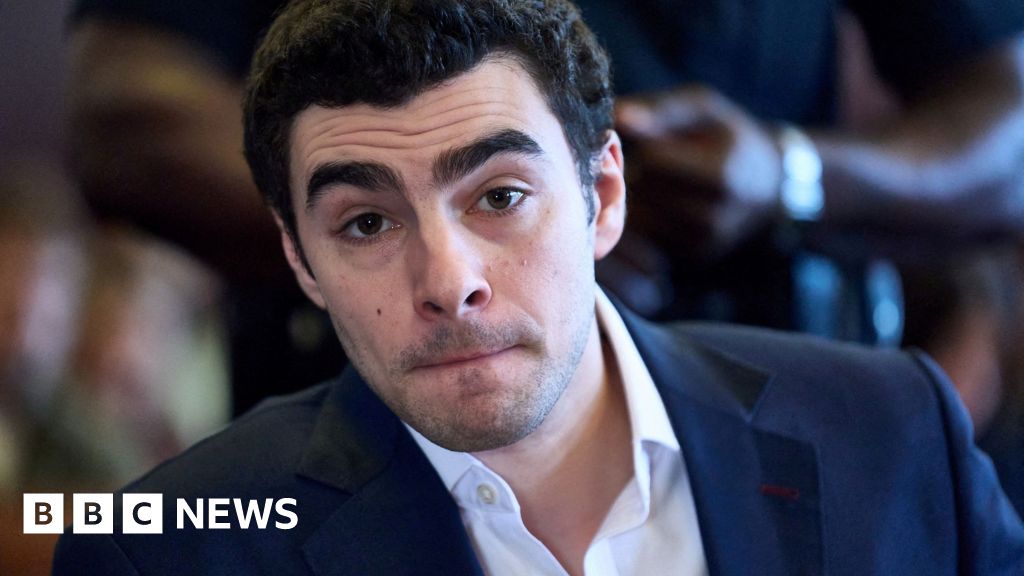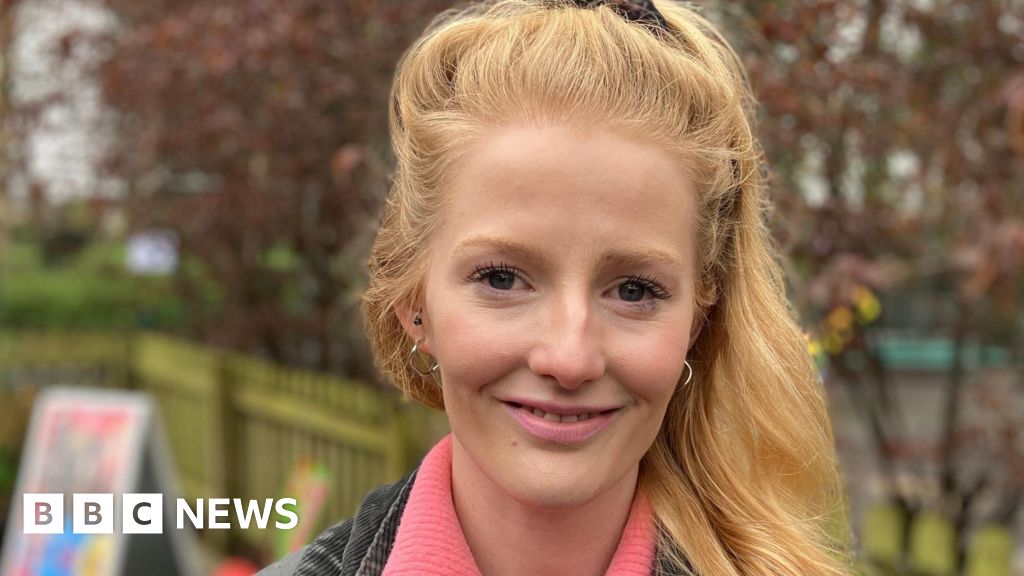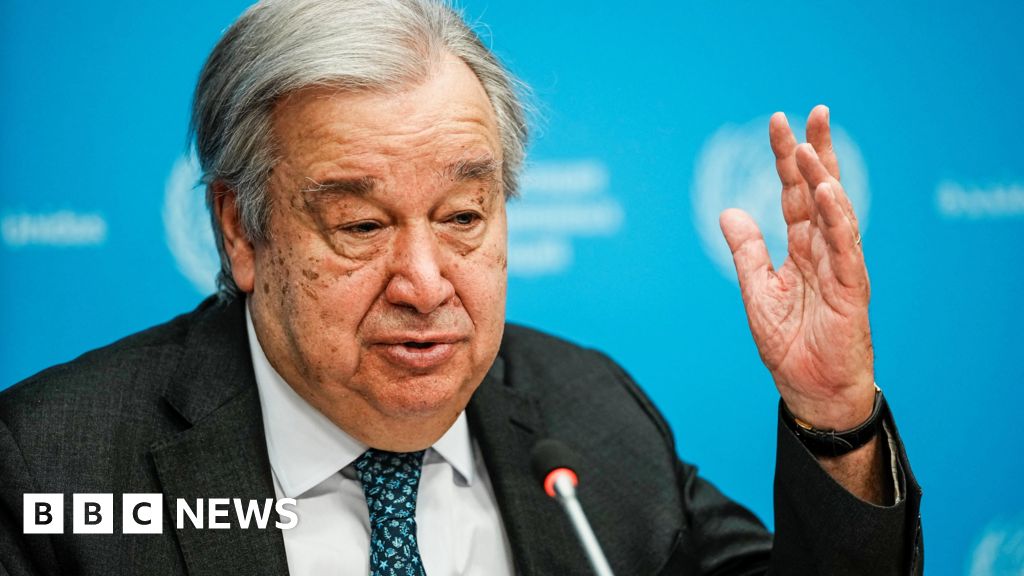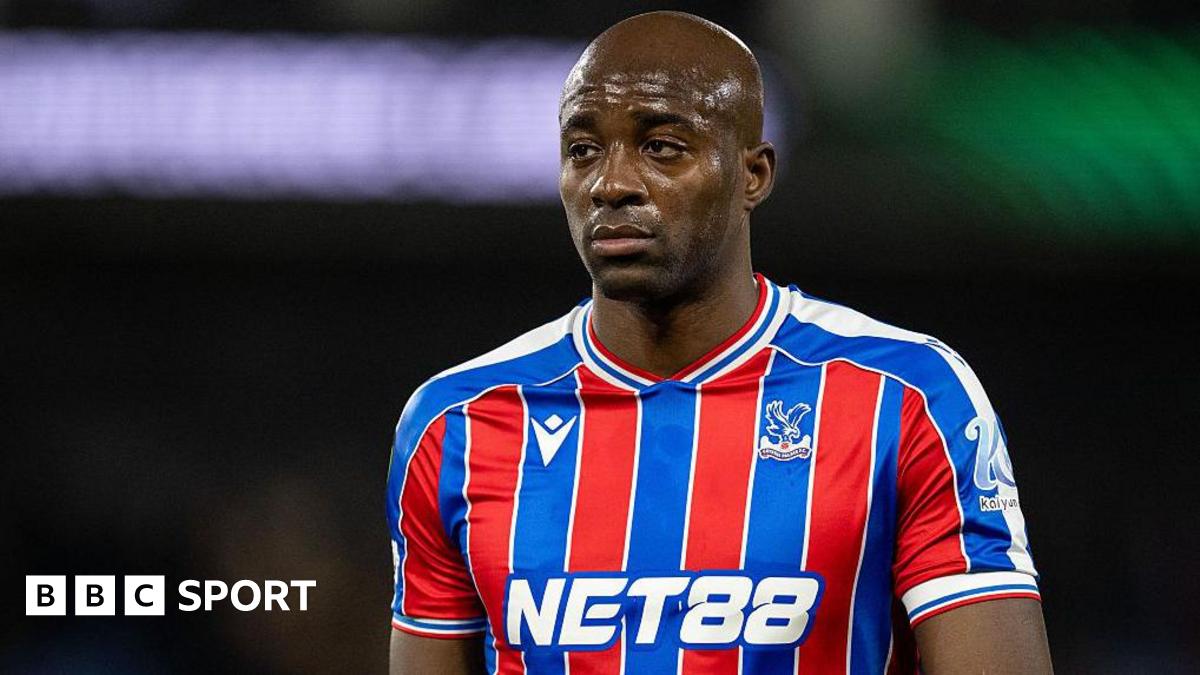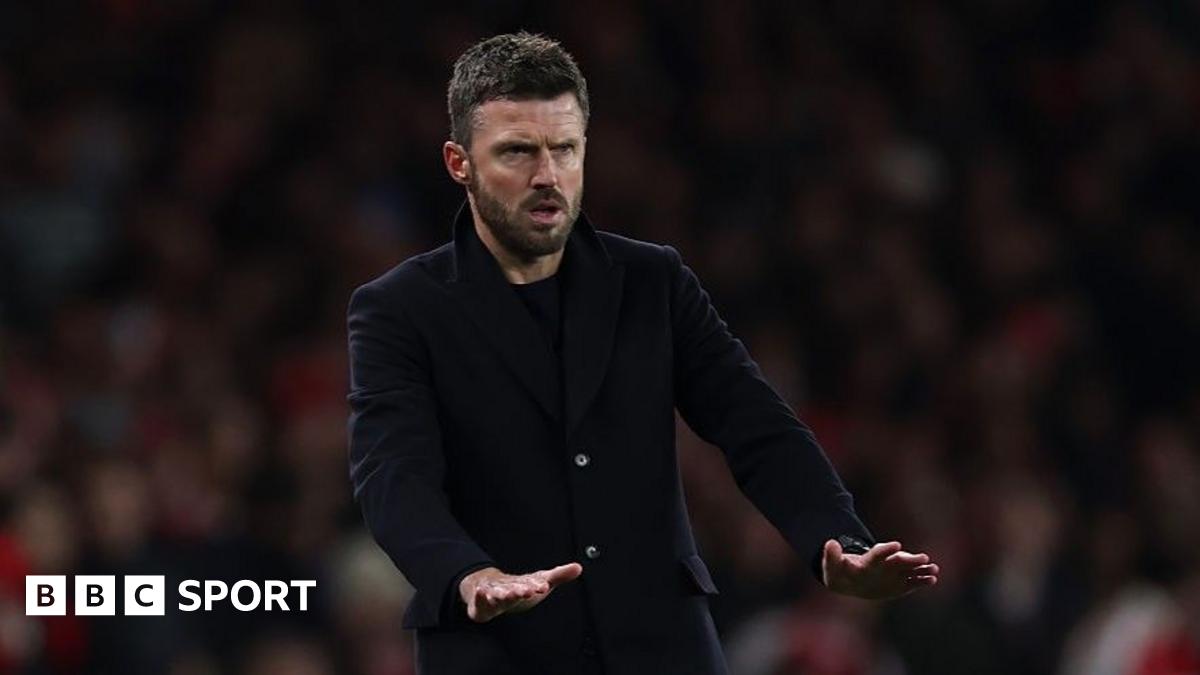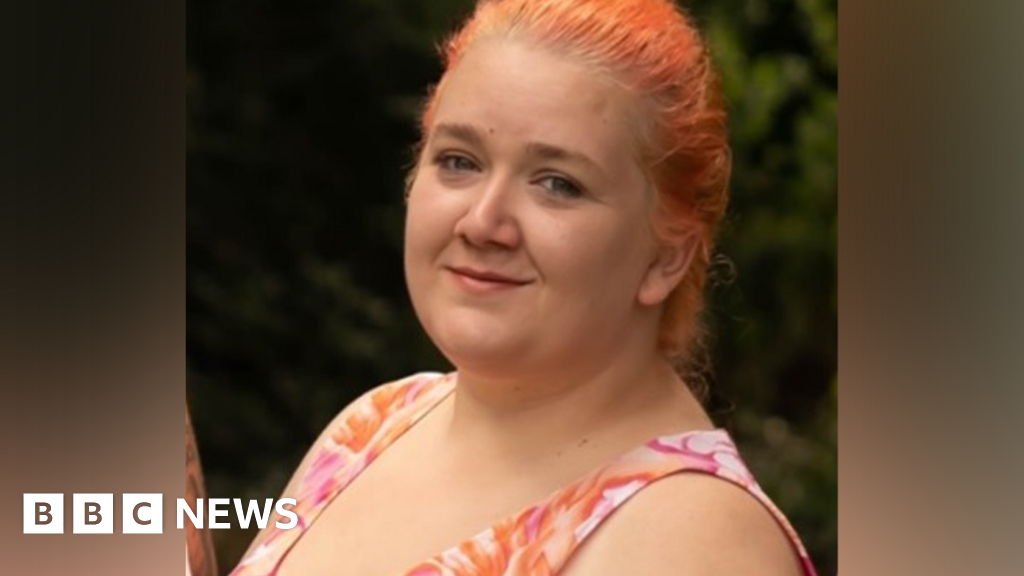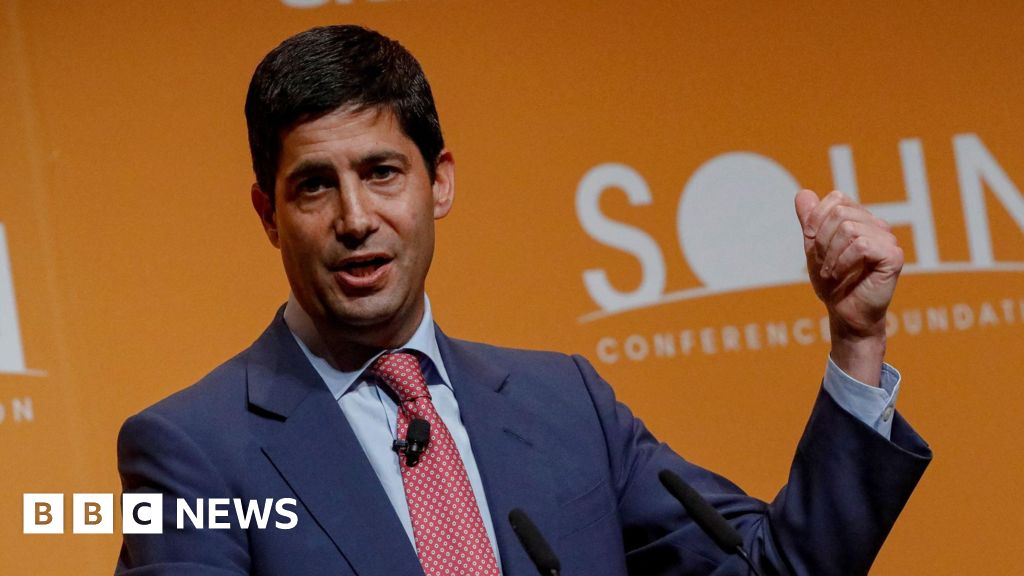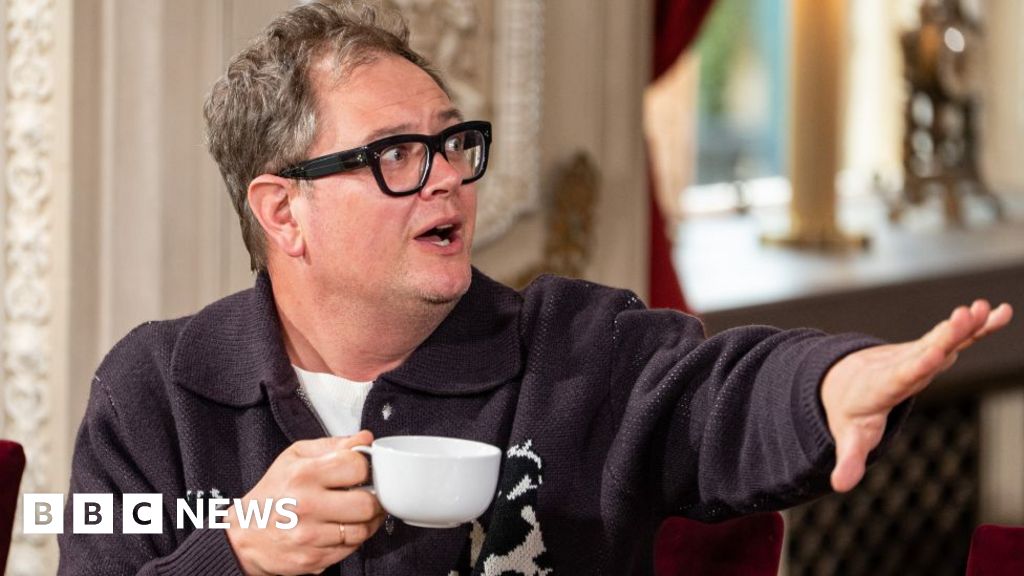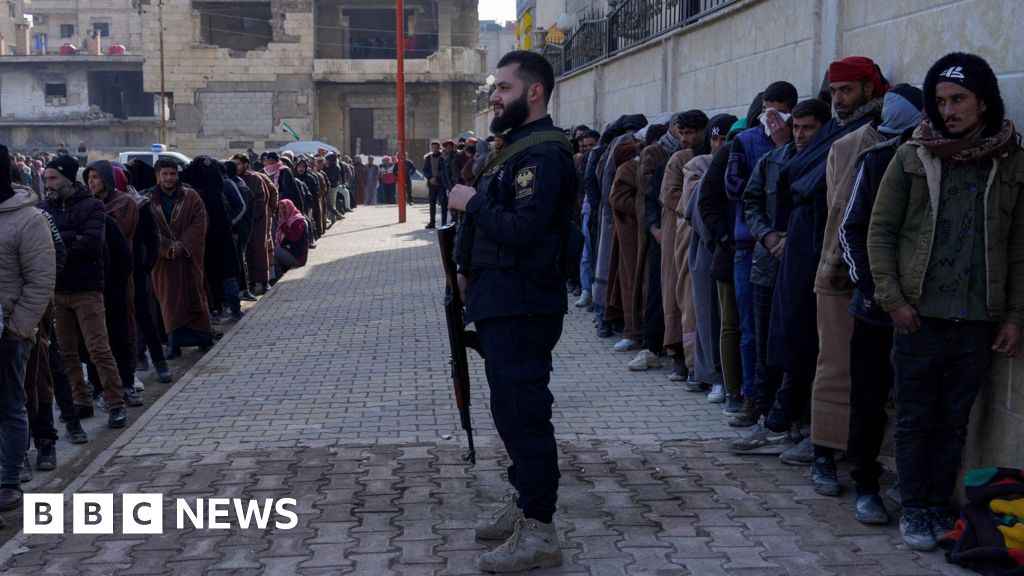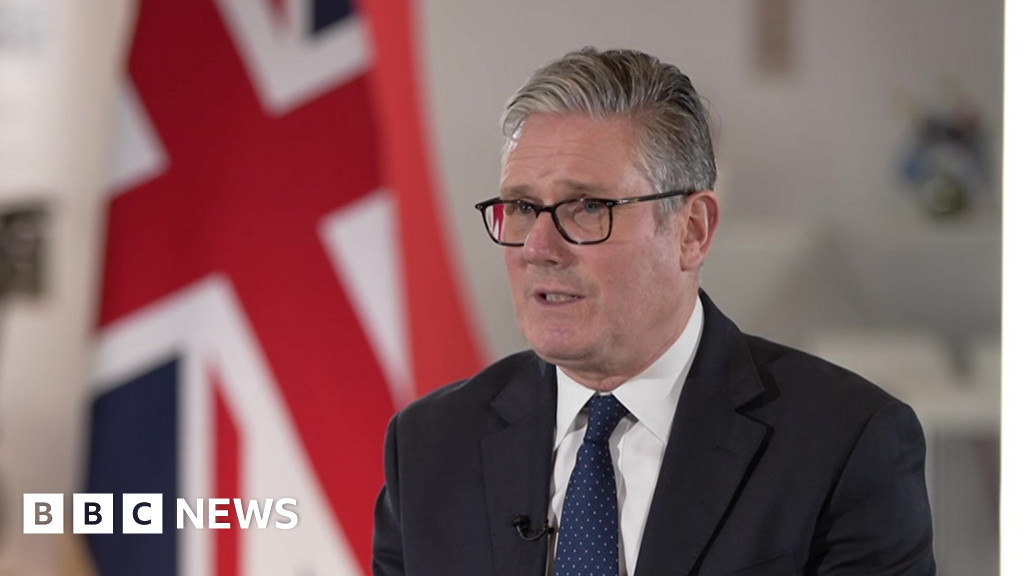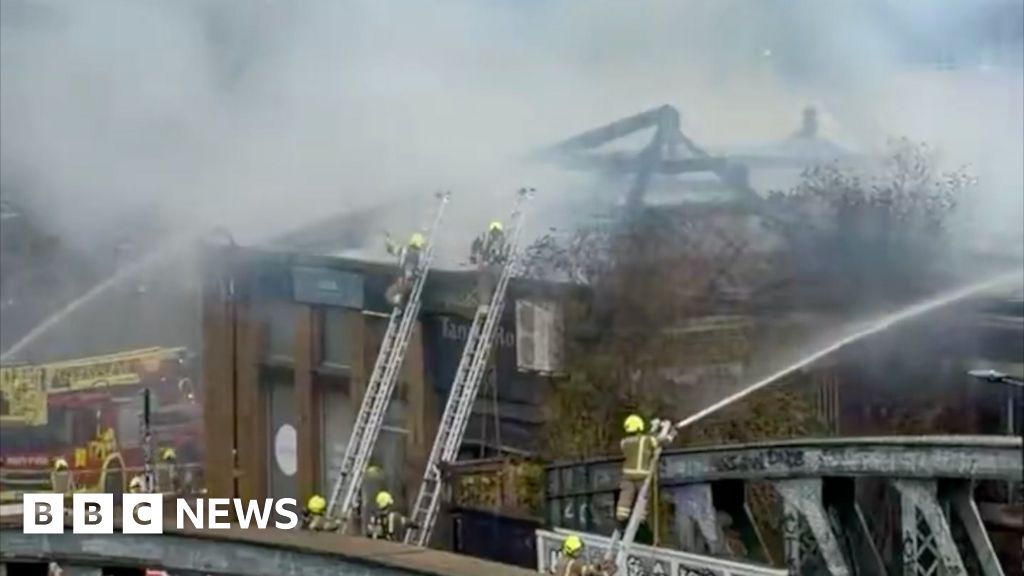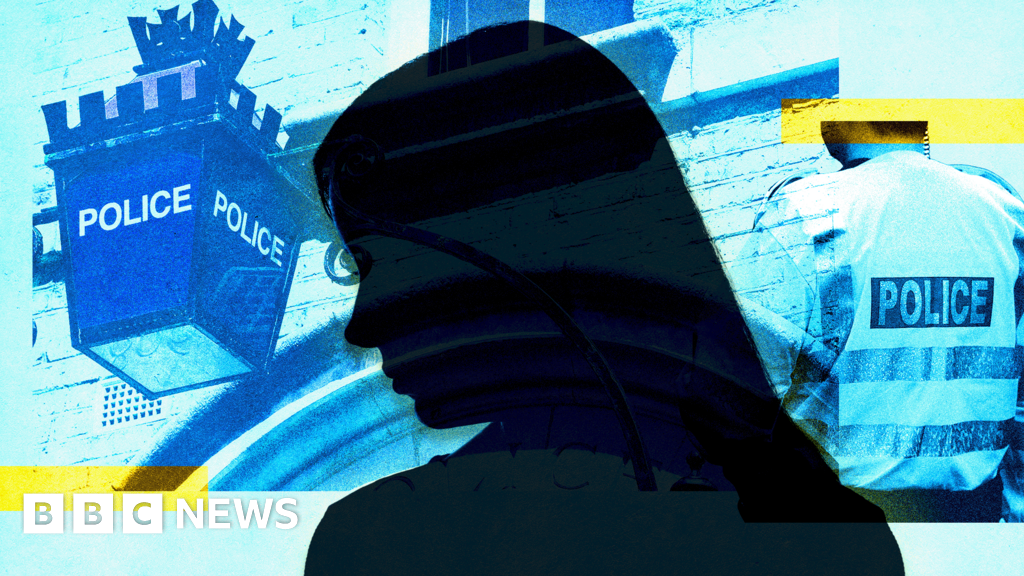Steve RosenbergRussia Editor in St Petersburg

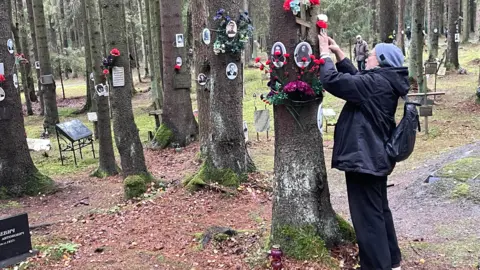 BBC
BBC
Tens of thousands of Stalin's victims are buried in this wood outside St Petersburg
In a wood on the edge of St Petersburg they're reading out a list of names.
Each name is a victim of the Soviet dictator Joseph Stalin's Great Terror.
In this part of Russia there are thousands of names to be read. Thousands of lives to remember on Russia's annual Remembrance Day for Victims of Political Repression.
Buried in the Levashovo Wasteland are believed to be at least 20,000 people - possibly as many as 45,000 - who were denounced, shot and disposed of in mass graves; individuals, as well as whole families destroyed in the dictator's purge in the 1930s.
Nailed to the trunks of pine trees are portraits of the executed. Standing here you can feel the ghosts of Russia's past.
But what of the present?
Today, Russian authorities speak less about Stalin's crimes against his own people, preferring to portray the dictator as a victorious wartime leader.
What's more, in recent years a string of repressive laws has been adopted here to punish dissent and silence criticism of the Kremlin and of Russia's war in Ukraine.
Kremlin critics might not be denounced as "enemies of the people" like under Stalin. But increasingly they are being designated "foreign agents".
The authorities claim the labelling helps to protect Russia from external threats.
More than three and a half years after Russia's full-scale invasion of Ukraine, Russian authorities have two main objectives: victory abroad and conformity at home.
Anyone here who publicly challenges, questions or even hints they doubt the official narrative that, in this war Russia is in the right, risks becoming a target.

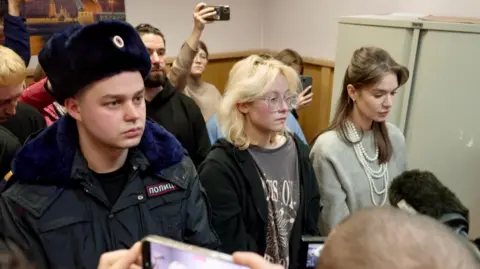
Diana Loginova (centre), aged 18, faces charges for her band's public performances
At Leninsky District Courthouse, the stairwell outside Courtroom 11 is packed with journalists. There is barely room to move.
I get talking to Irina. Her daughter Diana is on her way here in a police car for a court appearance.
"This must be frightening for you," I say.
Irina nods.
"I never thought anything like this could happen," says Irina softly. "You can't imagine it. Until it happens to you."
Minutes later, 18-year-old Diana Loginova arrives in the building guarded by three police officers. She hugs her mother and is taken into court.
Diana has already spent 13 days in jail for "organising a mass public gathering of citizens resulting in a violation of public order".
But the charges keep coming.
The "mass gathering" was an improvised street concert which the authorities claim obstructed pedestrian access to a Metro station.
Diana Loginova is a music student and, under the name Naoko, lead singer with the band Stoptime.

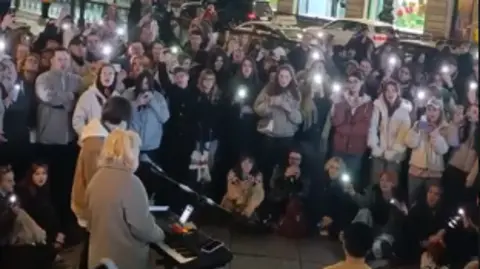 Telegram
Telegram
Stoptime have taken down their videos from social media, but other videos are still online
On the streets of St Petersburg, Stoptime have been performing songs by exiled Russian artists like Noize MC and Monetochka, singer-songwriters fiercely critical of the Kremlin and of Russia's war in Ukraine.
Many of these prominent musicians, now abroad, have been officially designated foreign agents by Russian authorities.
Videos posted online show that Stoptime's street concerts have been attracting quite a crowd, with dozens of mainly young people singing along and dancing to the music.
Whilst it is not forbidden in Russia to sing or play songs by foreign agents, in May a Russian court banned Noize MC's track Swan Lake Cooperative, claiming it contained "propaganda for the violent change of the constitutional order".
Swan Lake is seen by many as a symbol of political change in Russia.
In the USSR, Soviet TV often showed the ballet following the death of Soviet leaders, and it was back on Soviet TV screens in 1991 during the failed coup by communist hardliners. Lake (Ozero in Russian) is also the name of a dacha co-operative widely associated with President Putin's inner circle.
A video clip of Stoptime performing the song went viral recently on social media.

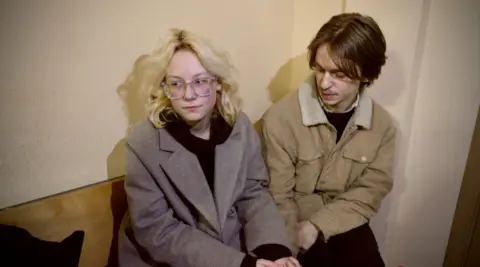
Diana's boyfriend and bandmate Alexander Orlov also faces charges
Diana Loginova was detained on 15 October. Police also arrested her boyfriend, guitarist Alexander Orlov, and drummer, Vladislav Leontyev.
The three band members were sentenced to between 12 and 13 days behind bars.
In Courtroom 11 Diana is facing an additional charge: discrediting the Russian armed forces. It relates to one of the songs she sang: You're a Soldier by ("foreign agent") Monetochka.
"You're a soldier," begins the chorus.
"And whatever war you are fighting,
"I'm sorry, I'll be on the other side."
After a brief hearing the judge finds Diana guilty of discrediting Russia's army and fines her 30,000 roubles (£285).
But she is not free to go. The police take Diana back to the police station and prepare more charges.

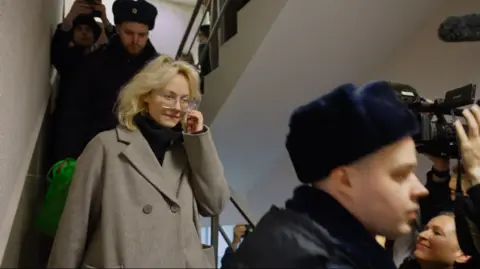
Diana tells the BBC that all her band have done is bring music to a big audience
The next day she and her boyfriend Alexander are brought to Smolninsky District Court. I manage to have a word with them before they enter the courtroom.
"I'm very pleased, and it's important, that people have been supporting us, that many people are on our side, on the side of truth," Diana tells me.
"I'm surprised by how things have been exaggerated. We've been accused of lots of things we didn't do. All we were doing was bringing the music we like to a mass audience. The power of music is very important. What's happening now proves that."
"I think it's not the words, it's the music that is most important," guitarist Alexander Orlov tells me. "Music says everything for people. It always has."
Alexander reveals he proposed to Diana when the police van they were being transported in stopped at a petrol station.
"I made a ring out of a tissue," he tells me. "I had time to get on my knees, and she said yes."
"We hope we'll be back home soon," says Diana. "That's what we're dreaming of most."
They won't be going home yet. At this latest court hearing the judge sends Diana and Alexander back to jail for another 13 days for more public order offences.

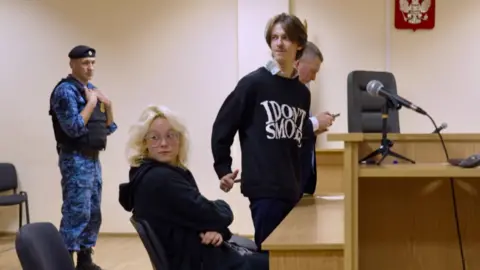
Alexander and Diana got engaged in a police van
Civil society in Russia is under intense pressure. Yet supporters of Diana Loginova and Stoptime are trying to make their voices heard.
"I was on the street when Diana was singing and people were singing along so beautifully," says Alla outside the courthouse. "For me it was important to be here to support Diana and show her some people do care. This should not be happening."
To another of Diana's supporters I suggest that, in Russia now, displaying solidarity for anyone accused of discrediting the Russian army requires a degree of courage.
"It's people like Diana who are the brave ones," says Sasha. "We're cowards. Some people are heroes. Others just follow behind."
"Some people [in Russia] are scared," continues Sasha. "But others here do support the authorities and what's going on. Unfortunately, I know people like this. It came as a blow when I discovered that people I've been friends with for 40 years support what's happening. For years they've been watching Russian TV. I haven't."
In the Urals city of Yekaterinburg, Yevgeny Mikhailov expressed his solidarity through music. The street musician performed songs in support of Diana Loginova. He was detained and jailed for 14 days for "petty hooliganism".
Despite the crackdown, young street musicians in St Petersburg continue to perform music by artists labelled foreign agents by Russian authorities.
It's a chilly autumn evening. But passers-by have stopped to listen to a teenage band outside a St Petersburg Metro station. Among the songs they're performing are compositions by "foreign agents" Noize MC and Morgenshtern.
Suddenly the police turn up. The concert is over.
I look on as three band members are taken away in a police car.

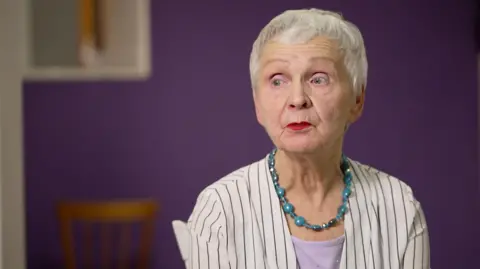
Ludmila Vasilyeva survived the Nazi invasion of the Soviet Union - now she questions Russia's war in Ukraine
I go to meet someone else in St Petersburg accused of "discreditation".
Ludmila Vasilyeva, 84, was born two months before Hitler's invasion of the Soviet Union.
She survived the Nazi siege of Leningrad (then the name for St Petersburg) and has carried with her all her life how devastating war can be.
So, when Vladimir Putin ordered a mass invasion of Ukraine in February 2022, Ludmila was deeply shocked.
Earlier this year, on the third anniversary of Russia's "special military operation", Ludmila went on to the street to express her anti-war stance.
"I wrote on my placard: 'People! Let's stop the war. We bear responsibility for peace on Planet Earth!'"
Following her personal protest Ludmila received a letter from the police instructing her to report to the police station.
"They told me that I had discredited our soldiers. How? By calling for peace? I let them know that everything I'd wanted to say I'd already made quite clear on my placard and that I wouldn't be going down to the station. They threatened to take me to court. And in the end that's what they did."
Ludmila was fined 10,000 roubles (£95) for "discrediting the Russian armed forces".
She has no regrets and seemingly, despite the growing repression around her, no fear.
"Why should I be scared?" Ludmila asks me. "Of what and of whom should I be frightened? I'm not scared of anyone. I speak the truth. And they know that."
She believes that increasing authoritarianism stems from those in power fearing the public.

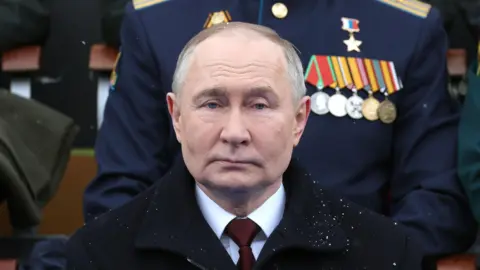 EPA
EPA
Vladimir Putin has ruled Russia for a quarter of a century
"People are scared. But [the authorities] are more scared. That's why they're tightening the screws."
Ludmila Vasilyeva's outspokenness is an exception, not the rule. Today few Russians engage in public protest. I ask Ludmila why that is: is it fear, indifference, or because of support for the authorities?
"Most people are focused on their own lives, on just surviving," Ludmila replies.
But she claims that when she speaks her mind publicly many people agree with her.
"When I go to the shops, I always strike up a conversation. No one has ever sneaked on me or put in a complaint about me.
"Once I was saying something down at the post office. Someone turned to me and said: 'Quiet, keep it down.' I replied: 'Why should I be quiet? What I'm saying, isn't it the truth? Truth must be spoken loudly.'"
Not everyone agrees.
"When I was standing with my placard and talking to a policeman, a man in his 50s came up to us. He leant forward and said: 'Just strangle her.'"

 3 months ago
68
3 months ago
68
